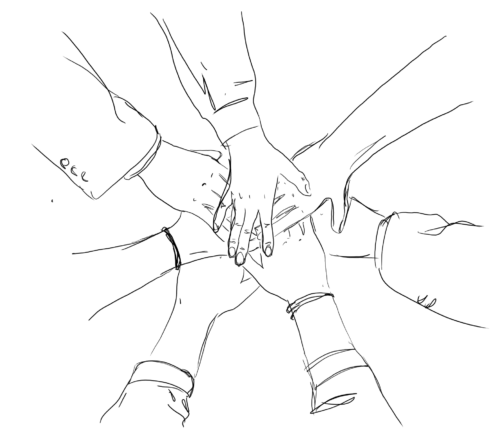Being a student-athlete in any Division I program comes with its challenges, whether that be physical or mental. As a result, significant amounts of money are devoted to state-of-the-art athletic training programs to ensure athletes have the support they need for optimal well-being. An area that has recently gained focus is the mental health of student-athletes. To perform at a high level, athletes need to be sharp and present; this becomes difficult when the stressors of practice, class, and social activities compound and threaten to make athletes feel like they are drowning. With intentional care and resources, athletes are aided in training their minds for peak performance, giving them a competitive edge.
Harvard has a specific division of CAMHS devoted to student-athlete mental health, called the Crimson Mind and Body Team. This team was established in 2019 after calls from the Harvard student-athlete community for better mental health support. This program is currently led by two clinicians, Mike Hinckley and Megan Willette, both of whom are Licensed Mental Health Counselors and Certified Mental Performance Consultants. Hinckley told the Independent that his work is “dedicated to nurturing overall well-being, enhancing mental resilience, and fostering peak performance” for all student-athletes on campus.
Mindfulness strategies are the primary way that clinicians recommend student-athletes use to prepare for games. One technique that Hinckley frequently teaches athletes is anchoring on their breath, which involves consciously focusing on the inhale and exhale of your breath to ‘feel’ oxygen moving throughout your body. He noted that the goal is for your breath to “serve as a valuable focus anchor for your attention when your mind wants you to pay attention to the physical sensations.” This type of mindfulness is extremely beneficial for physical activity, as the focus shifts to an element of exertion that you can control as opposed to uncontrollable pain. It is also a natural pathway to lower one’s heart rate and therefore recover.
Another form of mindfulness that Hinckley teaches to athletes is open awareness mindfulness. Compared to breath anchoring, this type of meditation “entails taking a mental step and observing what thoughts come into conscious awareness.” The focus of this practice is to strengthen mental pathways to prevent negative self-talk or demeaning thoughts from taking over in the middle of a competition. Instead of focusing on a singular controllable, the goal is to shut down focus on elements outside of your control. This mental fortitude can easily translate off the field and into many other parts of a student-athlete’s life.
These stressors are not limited to collegiate athletes. In recent years, professional athletes have become more vocal about their mindfulness practices and mental health needs. Simone Biles’s decision to withdraw from Olympic competition in 2021 for the sake of her mental health placed a spotlight on this issue that continues to gain attention. The psychological component behind any form of competition places stressors on the brain that can be potentially debilitating. Several athletes use different strategies to overcome these mental obstacles and refocus on what they can control. San Francisco 49ers tight end George Kittle is known across the NFL for his positive affirmations and ‘reset button’ permanently tattooed on his forearm; he began using mindfulness practices as a football player at the University of Iowa and has carried them on throughout his professional career.
The use of these techniques is not restricted to student-athletes before practice or competitions. Hinckley noted that he believes life can be broken down into a series of performances. He shared that “the same sport or performance psychology skills that an athlete may use for their sport can also
apply to a big exam, job interview, trading decision, or date.” This advice applies to all Harvard students, regardless of their campus activities. Mindfulness practices are a personal tool for taking control of your success. They’re just as helpful when you’re spiraling during a Stat 110 final as they are on the field in the final minute of a tied game. The next time you feel yourself running into a mental wall, take a breath and hit reset.
Kate Oliver ’26 (koliver@college.harvard.edu) has extremely specific pregame rituals that she counts as being mindful.

